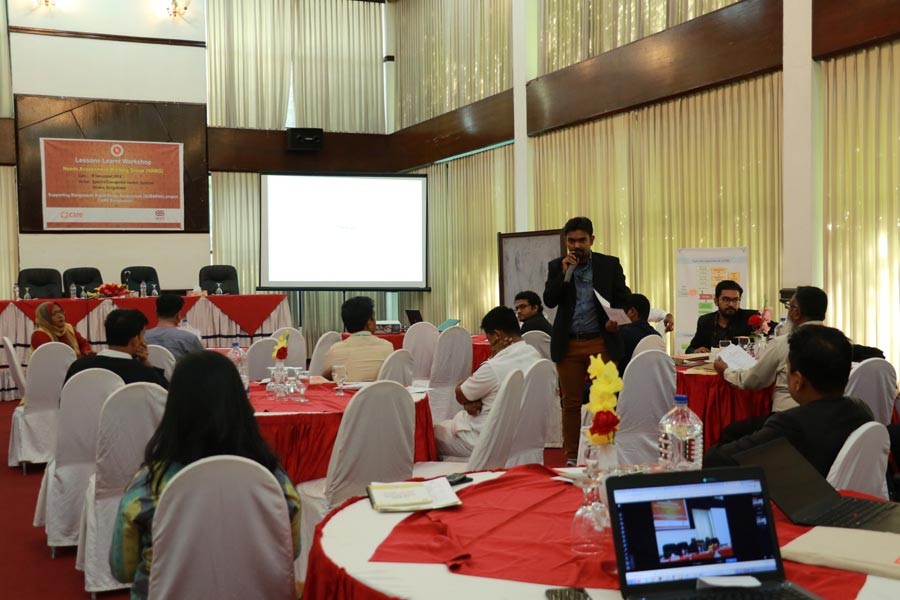Department of Disaster Management (DDM) of the Ministry of Disaster Management and Relief (MoDMR) of the government of Bangladesh and CARE Bangladesh jointly organised a workshop on Thursday with the overarching goal of strengthening evidence based response and recovery initiatives, says a press release.
Participants from different government departments, UN agencies and non-government organisations have come together for evaluating the damage caused by natural disaster and needs assessment initiatives to plan more effective disaster needs assessment under the umbrella of Needs Assessment Working Group (NAWG) which is being hosted by CARE Bangladesh under leadership of the DDM.
Needs Assessment Working Group (NAWG) is being hosted by Supporting Bangladesh Rapid Needs Assessment (SUBARNA) project of CARE Bangladesh. The Need Assessment Working Group (NAWG), chaired by Department of Disaster Management (DDM) and co-chaired by CARE Bangladesh, being operationalised under the supervision of Humanitarian coordination task team (HCTT) of Local Consultative Group of Bangladesh.
Md Anisur Rahman, director-DDM was present as chief guest. While sharing his experience of working as the NAWG focal of Government of Bangladesh he said, “Joint efforts of the government and non-government organisations have contributed towards Bangladesh becoming a champion in disaster management. I hope the joint needs assessment efforts will continue as per the newly revised Standing Order on Disaster (SOD) as an important part of the overall national disaster management.”
Henry Glorieux, humanitarian affairs advisor of United Nation’s Residence Coordinator (UNRC) Office in Bangladesh was also present at the event, and stated that “The event today is important to take stock of the tremendous progress made so far and to further strengthen humanitarian community determination to continuously improve its tools and processes, in particular for urban disasters”. He particularly lauded the quality work undertaken by the members of the NAWG which helps the humanitarian community to take informed-decisions on areas where there is a need to complement GoB-led response efforts and, to advocate on issues related to leaving no-one behind and the promotion of humanitarian-development nexus interventions.
During panel discussion, Abdul Kader, deputy secretary, Ministry of Disaster Management and Relief highlighted the importance of collaborative efforts between the government and non-government agencies to strengthen the effectiveness of Joint Needs Assessment (JNA). He said that government response is quicker and better than before. Panelist Ms Dilruba Haider, programme specialist, UN Women stated that NAWG has become more gender sensitive over the years and emphasised the need for having more female analysts and assessors on the field for effective and inclusive needs assessment.
The sessions brought up the challenges of the working group in collecting needs information, coordinating the assessment and analysis of the data alongside making remarks on how it can be improved. The experience of the member organisations was heard and commitment shown to improve the Needs Assessment tools, techniques and coordination further in the future as a joint initiative of the government and non-government actors as per the standing order on disaster (SoD) to contribute to effective disaster preparedness and resilient country through evidence based response and recovery planning.


